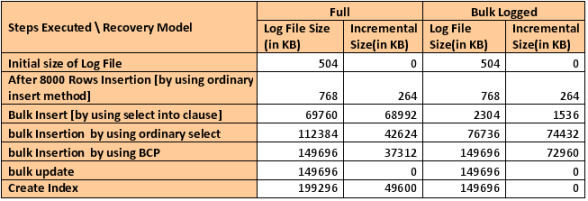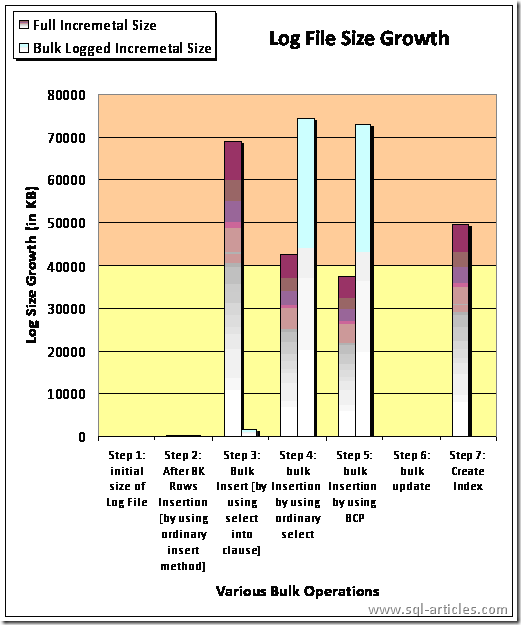This document is relevant to bulk operations on SQL Server. The bulk-logged recovery model is a special-purpose model that works in a similar manner to the full recovery model. The only difference is in the way it handles bulk data modification operations. The bulk-logged model records these operations in the transaction log using a technical known as minimal logging. This saves significantly on processing time, but prevents you from using the point-in-time restore option.
Microsoft recommends that the bulk-logged recovery model only be used for short periods of time. For best practice I had created a DB name called bulk Operations and Created couple of tables with two columns,
I had executed the same kind of bulk insert operations twice and changing the recovery models as FULL and Bulk Logged. And captured the log file growth,
- Initial size of Log File
- After 8000 Rows Insertion [by using ordinary insert method]
- Bulk Insert [by using select into clause]
- bulk Insertion by using ordinary select
- bulk Insertion by using BCP
- bulk update
- Create Index
Conclusion
Microsoft recommends the bulk-logged recovery model only is used for short periods of time. Its much suitable for processes like Select into clause, Index (Create / Rebuild/ Re-Organize) operations.
Reference
http://msdn.microsoft.com/en-us/library/ms190692.aspx
http://www.sql-articles.com/articles/troubleshooting/log-file-growth-in-sql-server



Leave a Reply